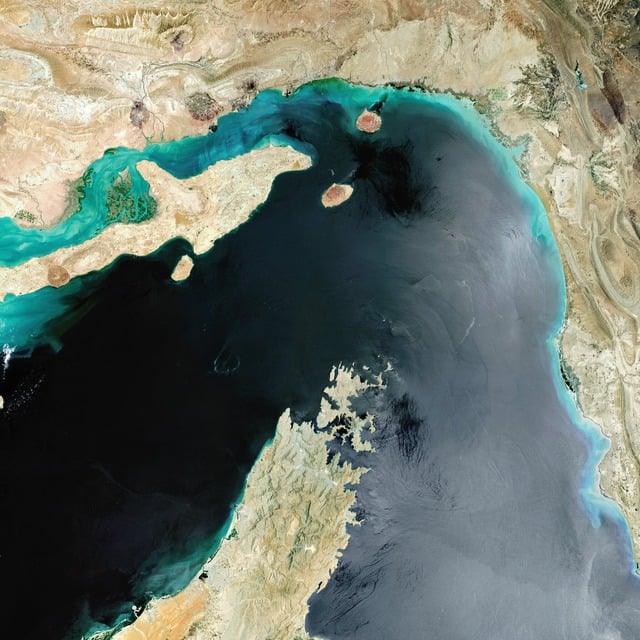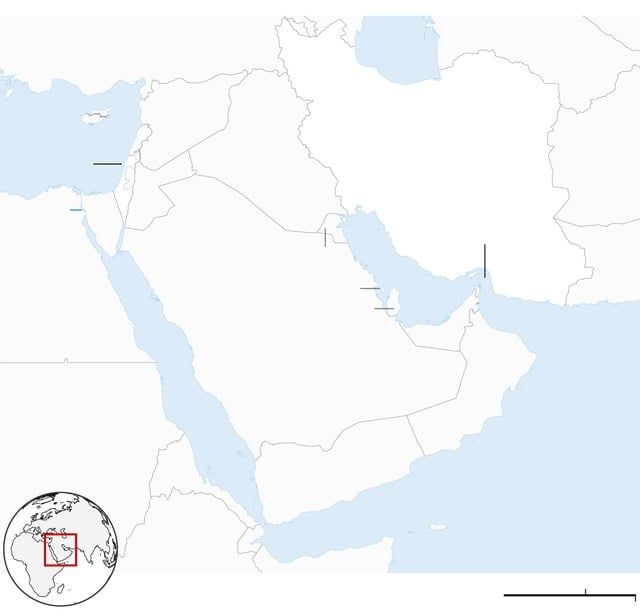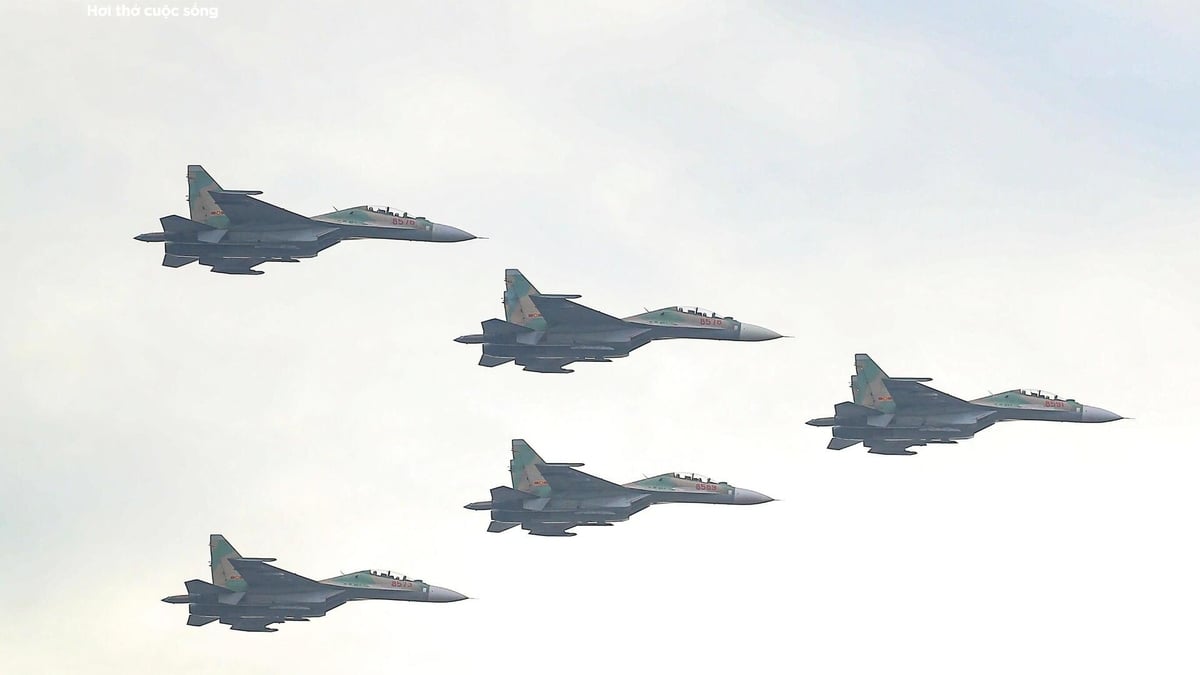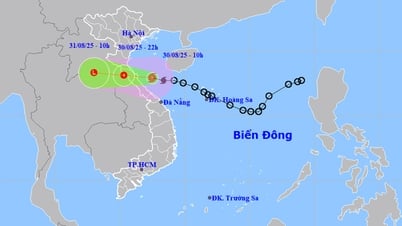A conflict between Israel and Iran with US involvement could potentially prompt Iran to retaliate by closing the Strait of Hormuz, a vital trade route through which more than a fifth of the world 's oil supply, 20 million barrels and most of its liquefied natural gas, passes every day.
Iran has previously threatened to close the strait, which would restrict trade and affect global oil prices, but has never carried out the threat.
What is the Strait of Hormuz?
Among the world's most important oil chokepoints, the Strait of Hormuz is of geostrategic importance to the US and many other countries, as the strength of the global economy depends heavily on the flow of oil, according to The Guardian .
Satellite image of the Strait of Hormuz showing the Iranian coast at the top, and Qeshm Island and Oman below - PHOTO: GETTY/NEW YORK TIMES
The strait lies between Oman and Iran, connecting the Gulf in the north with the Gulf of Oman in the south and the Arabian Sea beyond. The strait is 33 km wide at its narrowest point, with shipping lanes only 3 km wide in either direction.
Why is it so important?
About a fifth of the world's total oil consumption passes through the strait. Between the start of 2022 and last month, between 17.8 million and 20.8 million barrels of crude oil, condensate and fuels passed through the strait every day, according to data from analytics firm Vortexa.
Members of the Organization of the Petroleum Exporting Countries (OPEC) including Saudi Arabia, Iran, the United Arab Emirates, Kuwait and Iraq export the bulk of their crude oil through the strait, mainly to Asia.
The US 5th Fleet, based in Bahrain, is tasked with protecting commercial shipping in the region.
What if Hormuz is closed?
Closing the strait would cause oil prices to rise with almost immediate inflationary effects in the US and globally.
But it would also be an act of severe economic self-harm. Iranian oil uses the same gateway, and closing the Strait of Hormuz risks drawing Gulf Arab states, which have been fiercely critical of Israel’s attack, into a war to defend their own interests.
Closing the strait would be particularly damaging to China, the world’s second-largest economy that buys nearly 90 percent of Iran’s oil exports, which are under international sanctions.
Strait of Hormuz - PHOTO: GUARDIAN
US Secretary of State Marco Rubio has called on China to help prevent Iran from closing the strait, telling Fox News : "I encourage the Chinese government to call them on this, because they rely heavily on the Strait of Hormuz for their oil."
"If they do that (closing the strait) it will be another terrible mistake," he added: "It's economic suicide for them if they do that."
How does Iran close the strait?
Any attempt by Iran to close the strait would almost certainly involve Tehran attempting to mine two 3km-wide shipping lanes. There are concerns about sea mines, of which Iran is believed to possess thousands, including EM-52s that can launch missiles from the seabed if they detect a target, as well as other mines in its waters.
A challenge for Tehran, however, will be to successfully place the weapons, as the exercise will have to be carried out relatively quickly and will rely on submarines – three larger Russian-made Kilo-class boats and a fleet of miniature Ghadir-class submarines.
Nick Childs, an analyst at the International Institute for Strategic Studies, said Iran could “cause very significant disruption and potentially serious harm to US and other naval forces” trying to keep the waterway open. However, “for these reasons, an Iranian attempt to close the Strait of Hormuz would likely trigger a significant and comprehensive US military response.”
Source: https://thanhnien.vn/eo-bien-hormuz-la-gi-va-quan-trong-ra-sao-doi-voi-thuong-mai-toan-cau-18525062411203181.htm








![[Photo] People eagerly lined up to receive special publications of Nhan Dan Newspaper](https://vphoto.vietnam.vn/thumb/1200x675/vietnam/resource/IMAGE/2025/8/30/53437c4c70834dacab351b96e943ec5c)




























































































Comment (0)